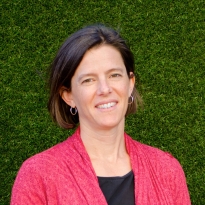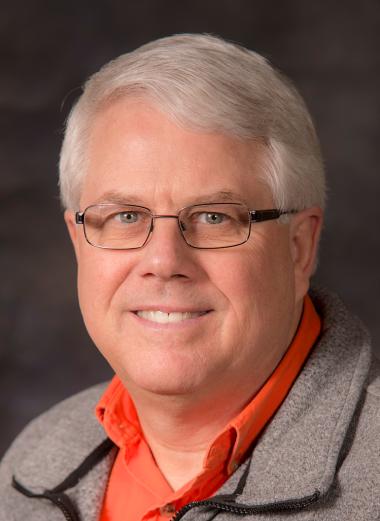REACCH Advances in Dryland Farming Webinar Mini Series

|
November 13th, 11:00am EST (8:00am PST)
Dr. Liz Allen and Dr. Katherine Hegewisch
|
  |
|
November 20th, 11:00am EST (8:00am PST)
Dr. Sanford Eigenbrode and Dr. Tim Paulitz
|
  |
|
December 11, 11:00am EST (8:00am PST)
Dr. Prakriti Bista and Dr. Rakesh Awale
|
  |
Future webinars:
Nov. 27, 11:00amEST/8:00amPST – Crop Rotations and Cropping System Diversification (Bill Pan, WSU, and Isaac Madsen, WSU)
Dec. 4, 2017 11:00amEST/8:00amPST – Nutrient Management and Precision Application (Tabitha Brown, WSU/Latah SWCD, and Erin Brooks, UI)
Dec. 18, 2017 11:00amEST/8:00amPST – Weed Management (Ian Burke, WSU)
Check back on this page for updates to the schedule
CLN/CSI Webinar: The CONSERVE Program. Thursday Dec. 7 @ 3:00pm EST

CONSERVE, A Transdisciplinary Research, Extension and Education Program at the Nexus of Sustainable Water Reuse, Food and Health
Presented by Amy Sapkota, PhD.
View Webinar Info Now (No Registration Required)
Our changing climate, escalating water demands from nonagricultural sectors, and depletion of groundwater sources by agricultural use are immediate challenges that call for the urgent need to explore and adopt safe, alternative irrigation strategies to sustain food production across the U.S. As a result, water reuse and the exploration of nontraditional irrigation sources have become national priorities with regard to agricultural water security and the sustainable production of our food supply. At the same time, the recent Food Safety Modernization Act is shifting the focus of food safety from responding to contamination to preventing it. This emphasis towards the prevention of foodborne illnesses places great responsibility on agricultural producers, who must meet stricter guidelines with regard to the quality of irrigation water used on food crops. Hence, at this critical juncture in food production, sustainable on-farm solutions are needed to enable agricultural producers to conserve groundwater and adopt safe, alternative approaches to irrigation.
To address this need, CONSERVE: A Center of Excellence at the Nexus of Sustainable Water Reuse, Food, and Health was established at the University of Maryland, School of Public Health through funding from the United States Department of Agriculture (USDA) National Institute for Food and Agriculture (NIFA). CONSERVE employs a systems approach to 1) evaluate the availability (quantity and quality) of nontraditional irrigation water sources (e.g. recycled water, brackish water, return flows) that could be used to help agricultural producers conserve groundwater; 2) identify the socio-behavioral, economic and regulatory factors that impact the use of these sources; and 3) develop, implement, and evaluate on-farm water treatment technologies for the safe and successful use of nontraditional irrigation water. We then share this new knowledge with agricultural and non-agricultural communities, and employ experiential education to teach, train, and inspire future leaders. This webinar will provide an overview of CONSERVE, as well as examples of our year 1 achievements. By the end of the webinar, participants will gain insights into the complex global picture of the potential for recycled water to become a more commonly accepted and used source for irrigation of food crops. As we move into a time of increasing water scarcity, a shift in water use strategies will be essential to sustain food production in arable land across the world.

Dr. Amy R. Sapkota is currently an Associate Professor in the Maryland Institute for Applied Environmental Health at the University of Maryland, School of Public Health. Dr. Sapkota received a PhD in Environmental Health Sciences from the Johns Hopkins Bloomberg School of Public Health, and an MPH in Environmental Health Sciences from the Yale School of Public Health. She completed a post-doctoral fellowship with the Environmental Microbial Genomics Group within Le Centre National de la Recherche Scientifique in Lyon, France. Dr. Sapkota’s research interests lie in the areas of environmental microbiology, environmental microbial genomics, exposure assessment and environmental epidemiology. Her projects focus on evaluating the complex relationships between environmental exposures and adverse health outcomes. Currently, Dr. Sapkota is the Director of “CONSERVE: A Center of Excellence at the Nexus of Sustainable Water Reuse, Food and Health” which was established in 2016 through funding from the U.S. Department of Agriculture, National Institute for Food and Agriculture. The mission of CONSERVE is to facilitate the adoption of transformative on-farm solutions that enable the safe use of nontraditional irrigation water on food crops, effectively reducing the nation’s agricultural water challenges that are exacerbated by climate change. In addition to CONSERVE, Dr. Sapkota is a Co-Principal Investigator within the University of Maryland/Battelle, Tobacco Center of Regulatory Science and leads a study that is exploring tobacco microbial constituents and the oral microbiome of tobacco users. To begin to expand this work to international settings, Dr. Sapkota recently completed a Fulbright Senior Scholarship in collaboration with the B.P. Koirala Memorial Cancer Hospital located in Chitwan, Nepal, where the team explored the relationships between the oral microbiome, tobacco use and lung cancer risk.
CLN/ANREP-CSI Webinar: Boosting producer learning, exchange and adoption of water use efficient technologies. Thursday, Nov. 2, 3:00pm EDT.
CLN/ANREP-CSI Webinar: Optimizing Water Use for Agriculture and Rural Communities Thursday, October 5, 2017 at 3:00pm EDT
Register Now
The challenges facing the Ogallala Aquifer region today are relatively well defined. We know how much groundwater is in the aquifer and how much it has declined since irrigation started with sufficient accuracy to identify key depletion hotspots and project decline rates moving forward. What has not yet been solved is how we will respond as a region to these challenges in a way that maximizes water use efficiency and perhaps even stabilizes groundwater levels. The Ogallala Water Coordinated Agriculture project (OWCAP) is a 4-year project funded by USDA-NIFA in 2016 to support a regional, interdisciplinary research and outreach effort to water and long-term agricultural sustainability issues facing the High Plains. The project’s research and outreach are informed by and target a wide range of stakeholders at the local, State and Federal level.
 Meagan Schipanski, co-director of the USDA-NIFA funded Ogallala Water Coordinated Agriculture Project (OWCAP) is an Assistant Professor at CSU. Her research focuses on understanding plant-soil interactions that mediate nutrient cycling using concepts from ecology and biogeochemistry. Her group investigates organic matter, nutrient, and water dynamics within cropping systems from rhizosphere to global scales using on-farm, experiment station, greenhouse, and modeling experiments.
Meagan Schipanski, co-director of the USDA-NIFA funded Ogallala Water Coordinated Agriculture Project (OWCAP) is an Assistant Professor at CSU. Her research focuses on understanding plant-soil interactions that mediate nutrient cycling using concepts from ecology and biogeochemistry. Her group investigates organic matter, nutrient, and water dynamics within cropping systems from rhizosphere to global scales using on-farm, experiment station, greenhouse, and modeling experiments.
CLN/CSI Webinar: The Cattle Comfort Advisor: a Tool for Managing Heat & Cold Stress. September 7, 2017 at 3:00PM EDT
 Join us to learn how to use the Cattle Comfort Advisor a powerful new tool for managing livestock comfort. Cattle are susceptible to heat and cold stress. In the worst case situations, extreme heat or cold can cause animal fatalities. In less extreme conditions, heat or cold can increase an animal’s susceptibility to disease, negatively impact reproduction, or decrease animal gain. To put numbers to cattle heat and cold stress, a new National Cattle Comfort Advisor has been developed. This tool is updated hourly and provides vital data to cattle producers across the country to help insure high quality beef and dairy production. The Cattle Comfort Advisor is based on a livestock stress formula introduced in 2010 by animal scientists at the University of Nebraska. The National Cattle Comfort Advisor and an Oklahoma Cattle Comfort Advisor were developed by the Oklahoma Mesonet. Support for the National Cattle Comfort Advisor was provided as part of USDA AFRI grant #2014-67004-21624. REGISTER NOW
Join us to learn how to use the Cattle Comfort Advisor a powerful new tool for managing livestock comfort. Cattle are susceptible to heat and cold stress. In the worst case situations, extreme heat or cold can cause animal fatalities. In less extreme conditions, heat or cold can increase an animal’s susceptibility to disease, negatively impact reproduction, or decrease animal gain. To put numbers to cattle heat and cold stress, a new National Cattle Comfort Advisor has been developed. This tool is updated hourly and provides vital data to cattle producers across the country to help insure high quality beef and dairy production. The Cattle Comfort Advisor is based on a livestock stress formula introduced in 2010 by animal scientists at the University of Nebraska. The National Cattle Comfort Advisor and an Oklahoma Cattle Comfort Advisor were developed by the Oklahoma Mesonet. Support for the National Cattle Comfort Advisor was provided as part of USDA AFRI grant #2014-67004-21624. REGISTER NOW
 Albert Sutherland coordinated development of the National and Oklahoma Cattle Comfort Advisors. He leads agricultural and horticultural product development and extension outreach for the Oklahoma Mesonet. He has a Bachelor’s degree in horticulture from Oregon State University, a Masters in horticulture from Ohio State University, and has worked for Oklahoma State University since 1989. Albert is a Certified Crop Advisor and Certified Professional Horticulturist.Albert Sutherland coordinated development of the National and Oklahoma Cattle Comfort Advisors. He leads agricultural and horticultural product development and extension outreach for the Oklahoma Mesonet. He has a Bachelor’s degree in horticulture from Oregon State University, a Masters in horticulture from Ohio State University, and has worked for Oklahoma State University since 1989. Albert is a Certified Crop Advisor and Certified Professional Horticulturist.
Albert Sutherland coordinated development of the National and Oklahoma Cattle Comfort Advisors. He leads agricultural and horticultural product development and extension outreach for the Oklahoma Mesonet. He has a Bachelor’s degree in horticulture from Oregon State University, a Masters in horticulture from Ohio State University, and has worked for Oklahoma State University since 1989. Albert is a Certified Crop Advisor and Certified Professional Horticulturist.Albert Sutherland coordinated development of the National and Oklahoma Cattle Comfort Advisors. He leads agricultural and horticultural product development and extension outreach for the Oklahoma Mesonet. He has a Bachelor’s degree in horticulture from Oregon State University, a Masters in horticulture from Ohio State University, and has worked for Oklahoma State University since 1989. Albert is a Certified Crop Advisor and Certified Professional Horticulturist.

